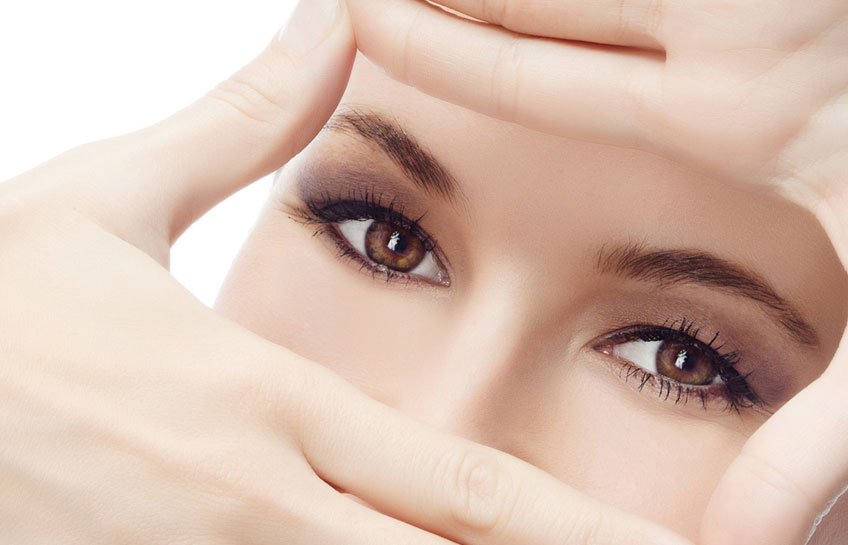We know that healthy eyes are an important factor in a good quality of life, but how can we maintain sufficient quality of sight through our senior years? Are we really aware of how dependent we are on our sight? Good vision allows us to admire the natural beauty around us, to read a good book and appreciate the faces of loved ones. Vision is so important to daily life that we worry more about losing our eyesight than our ability to walk or hear. Despite eyesight being among our most treasured senses, however, most of us take insufficient care of our eyes. Modern lifestyles increasingly involve us gluing our eyes to high-tech devices such as computers, laptops, tablets and smartphones, which substantially increase the risks to our eyes.

- Eat right
There are many foods that do a good job of protecting eyesight. Studies have shown that nutrients linked to a lower susceptibility to common eye conditions include lutein, omega-3 fatty acids and vitamins C and E.
By regularly eating foods rich in protective nutrients and antioxidants, we can help maintain eye health and prevent troubling conditions such as macular degeneration and glaucoma in later life. Good foods include leafy greens such as spinach and kale; cold-water fish such as salmon, tuna and other oily fish; nuts, beans, eggs and other non-meat proteins such as soy; dark-coloured fruits such as the berry and cherry families; and grapes, citrus fruits and juices, broccoli and green tea.
- Stop smoking
Smoking makes people more susceptible to macular degeneration, developing cataracts and optic nerve impairment. If you are a smoker, it is highly recommended to apply to a stop-smoking programme. If you previously quit smoking and started up again, don’t give up. The more times you try to quit, the more likely you are to succeed.
- Manage your use of high-tech devices
Staring at the computer, phone or other digital devices can cause major strain on the eyes, and can also cause dry eyes, blurry vision, headaches, and neck, back and shoulder pain. These issues are growing in line with advancing technology as people use more devices. Taking the following steps will help protect the eyes and alleviate some of the problems:
- Make sure you have sufficient light when reading books or high-tech devices.
- Make sure eyeglasses or contact lenses are up-to-date and good for computer use. Some people may need glasses to help with contrast, glare and eye strain when using a computer.
- Position your computer so that your eyes are level with the top of the monitor. This allows you to look slightly down at the screen.
- Try to avoid glare on the computer screen from windows and lights. Use an anti-glare screen or film if necessary.
- Choose a comfortable, supportive chair. Position it so that your feet are flat on the floor.
- If your eyes become dry, blink more often.
- Every 20 minutes, rest your eyes by looking 20 feet away for 20 seconds. Get up at least every two hours and take a 15-minute break. This will help reduce eye strain.
- Get the eyes checked regularly
When you don’t have a noticeable vision problem, it’s easy to forget to get your eyes checked, similar to your annual physical check-up. Eye exams are not just for those experiencing changes in visual acuity; they are indispensable for detecting slight changes to eye health and other systemic health issues, such as glaucoma and diabetes, at an early, more treatable stage.
If you wear corrective lenses, bring your lens prescription or eyeglasses to your check-up. Even if you don’t have any current vision problems, bring your full family health profile. Often patients don’t realize the connection between larger systemic illnesses and eye health. Alerting your doctor to potential issues can help guide the course of the eye examination. Eye care should begin at an early age and should be part of a normal health routine throughout your life.
The modern world provides us with a better quality of life but also exacerbates some health risks. Since eye health is a key factor in our quality of life, we should pay attention to maintaining our eyesight. The recommendations above are not difficult to adopt and ensure that we will be able see the beautiful world for a long time to come.














































































































































































































































































































































































































































































































































































































































































































































































































